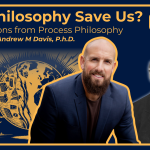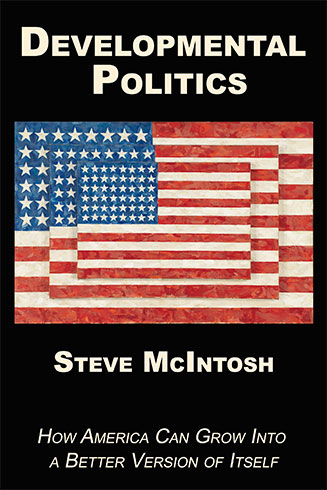The Presence of the Infinite
Chapter 6: A Constructive Critique of Nondual Spiritual Teachings
. . . A central feature of evolutionary spirituality is its vigorous pursuit of excellence and its relentless striving for improvement. This penchant for progress creates a sense of restlessness and discontent with current conditions. And this discontent becomes particularly acute with regard to the developed world’s current state of spiritual evolution, which leads to this chapter’s critique of nondual spirituality.
Recall that in chapter 1 we identified both the need and the opportunity for more agreeable and inclusive forms of spiritual leadership in the developed world. And in chapter 2 we began to explore how the rise of evolutionary spirituality could supply such leadership. Also in chapter 2, we examined how harnessing the developmental potential of an existential polarity involves using its inherent conflicts to discover the transcendent synthesis implied by the existence of its dialectical tensions. Then in the last chapter we explored how the maturation of progressive spirituality has revealed more clearly than ever before the existence of such an existential polarity within the world’s spiritual teachings (both ancient and modern) and also within human spiritual experience overall.
So now in this chapter we will use evolutionary spirituality’s method of dialectical epistemology to help facilitate the emergence of evolutionary spirituality itself. In the context of contemporary spiritual culture, this dialectical method involves working with the essential contradictions between nondual and theistic teachings about the nature of ultimate reality. When we evaluate the respective truth teachings of these two poles in light of the spiritual teachings of evolution, we can begin to recognize certain underappreciated propositions of spiritual truth (underappreciated within progressive spirituality at least) most often associated with theistic spirituality. As I will argue, these truths are confirmed by the spiritual teachings of evolution themselves and are thus rehabilitated and reclaimed by evolutionary spirituality.
As a preview, the teachings of spiritual truth that can be recognized as necessities from the viewpoint of evolutionary spirituality include: (1) the necessity of a spiritually real evolving soul; (2) the necessity of human free will; (3) the necessity of a spiritually real evolving finite universe; and (4) the necessity of recognizing that ultimate reality possesses the personal powers of intention and love. I believe these propositions of spiritual truth are necessary elements of evolutionary spirituality because they follow directly from the spiritual teachings of evolution. Simply put, the universe does not really make sense unless we acknowledge a place for these truths within our spirituality.
While the recognition of these evolutionary necessities inevitably results in a constructive critique of some of the teachings of nonduality, my arguments do not attempt to invalidate nondualism. As I hope will become clear in the next chapter, the purpose of this critique is to help establish a more “roomy oneness” within nondual teachings that can better accommodate the spiritual parts within the spiritual whole. However, the same practice technique that allows us to engage effectively the polarity of nonduality and theism in an evolutionary context also requires us to reaffirm and preserve the core teachings of nonduality, even in the face of paradox and contradiction. . . .





